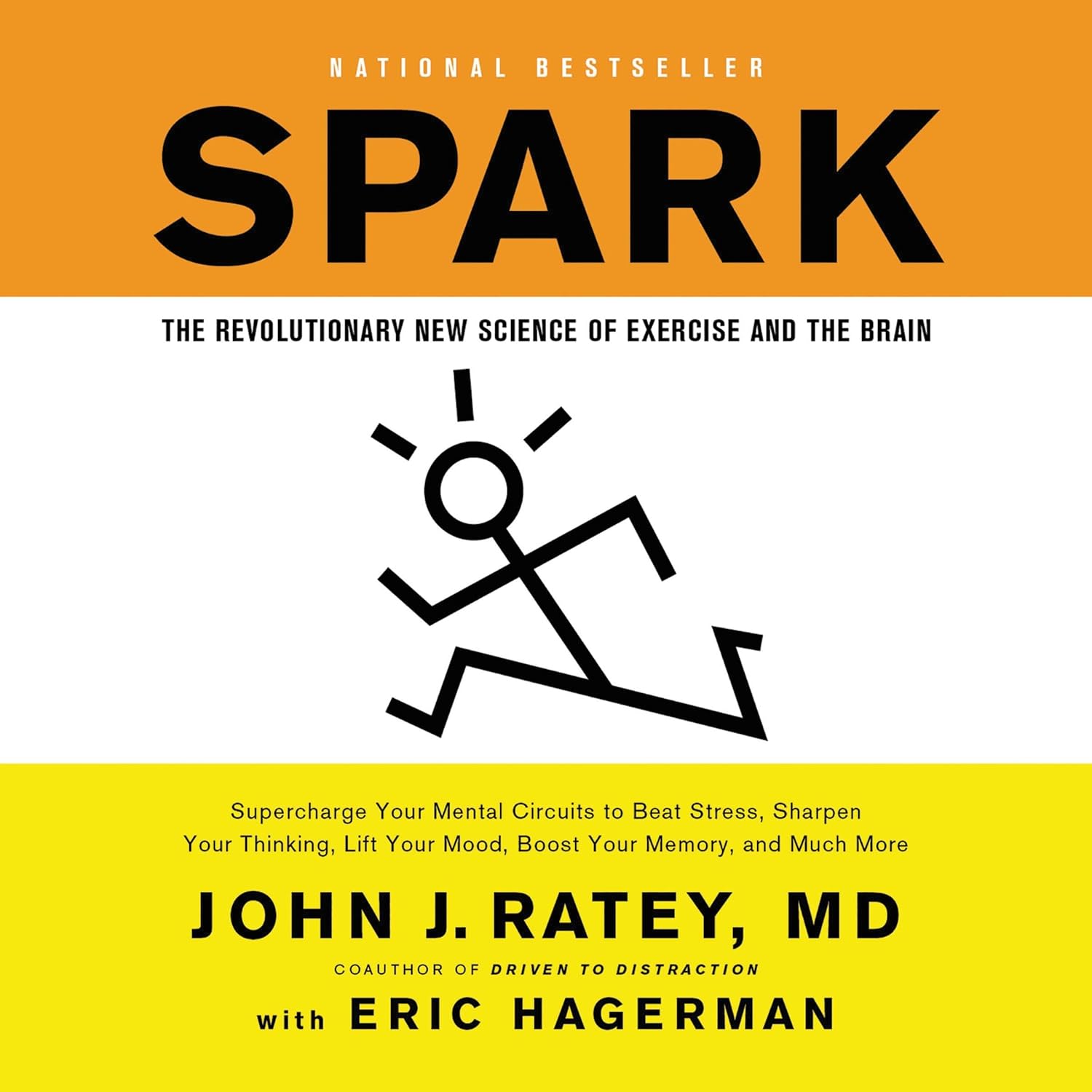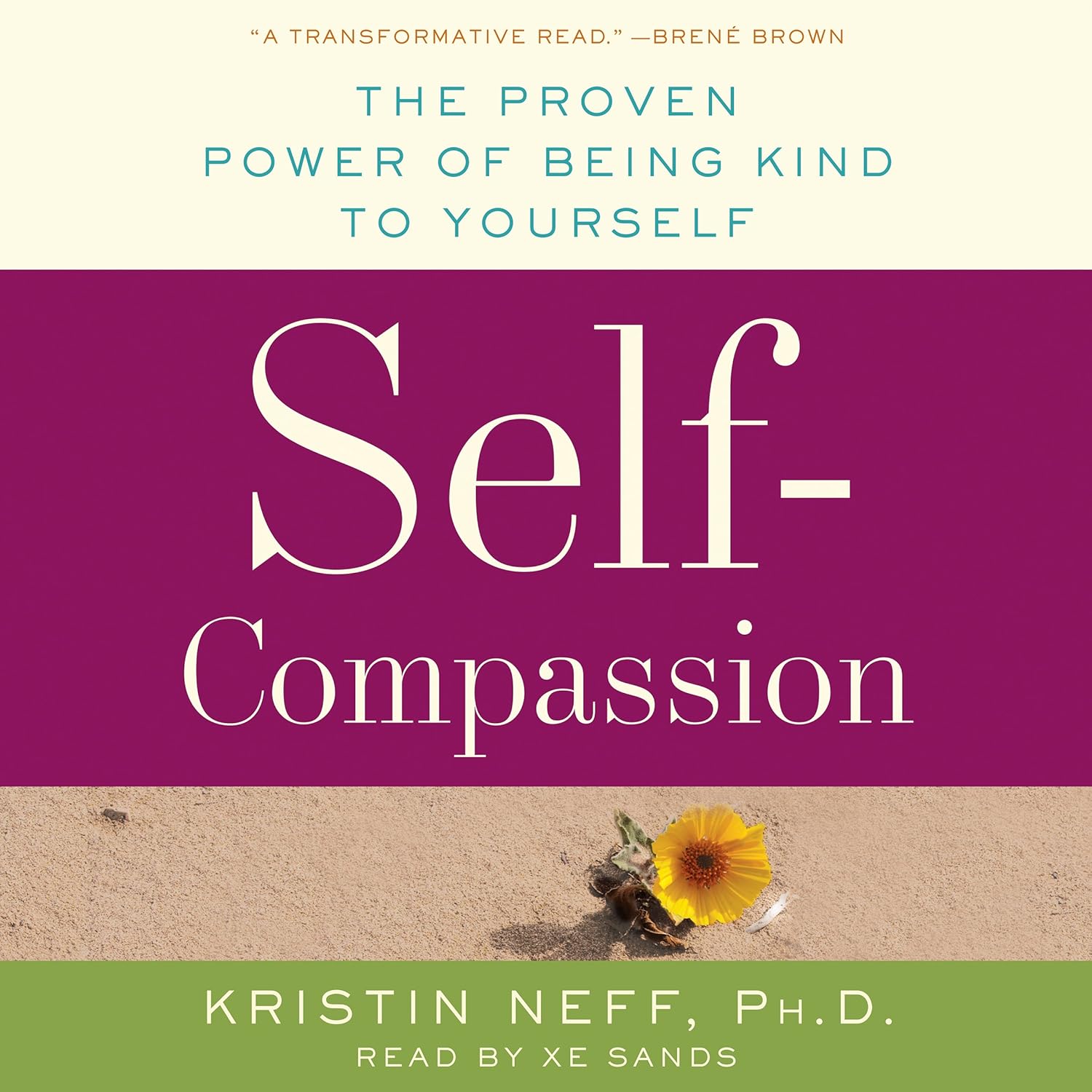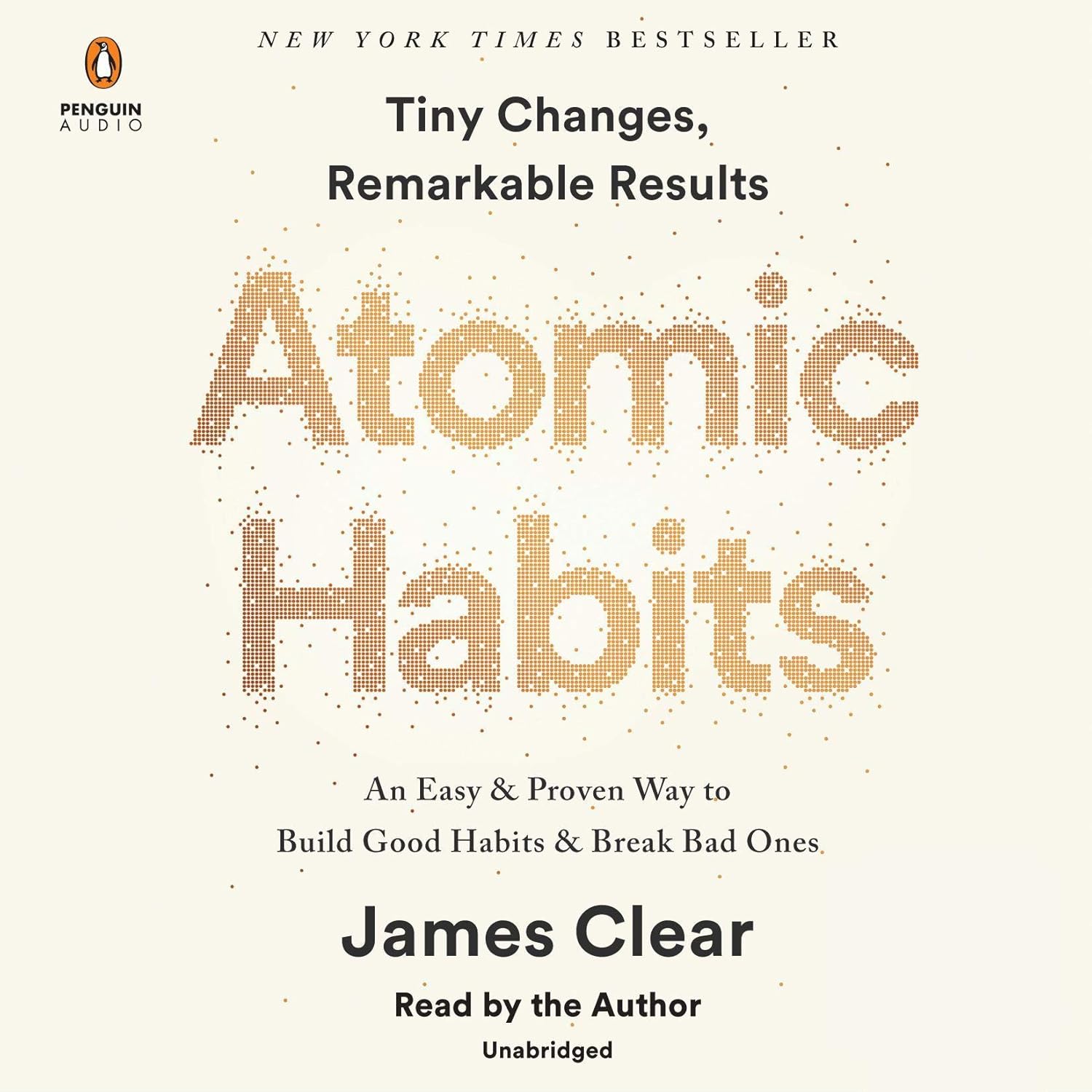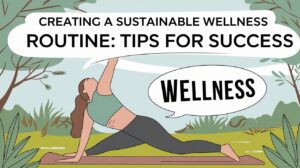Emotional Well-being is an integral constituent of a happy, well-rounded existence. Living in today’s fast world, where stress, anxiety, and burnout have become so customary, proactive action to enhance emotional well-being becomes important. This article considers practical ways of developing a healthier mindset, building emotional resilience, and increasing mental clarity. Integrating simple habits, routine activities, and positive thinking enhances your emotional state and opens the view towards a more rewarding life.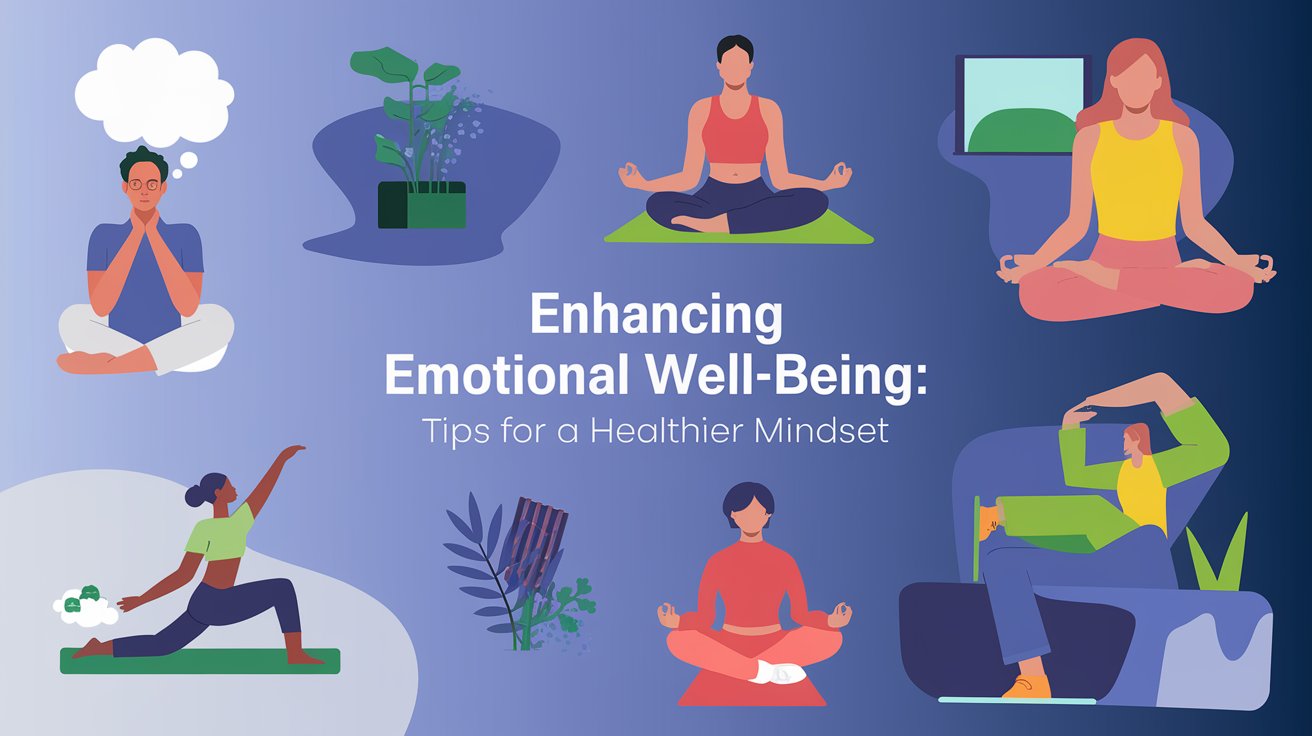
Understanding Emotional Well-being
Emotional well-being is defined as the ability to handle life’s stresses, have rewarding relationships, and find meaning or purpose in life. It isn’t just feeling happy all of the time but rather learning how to handle your emotions in healthy ways even when bad times hit.
By investing in your emotional well-being, you will be able to cope better with life’s ups and downs, recover from setbacks much easier, and have healthier relationships. Some of the important components of emotional wellness include the following:
- Self-awareness: Knowing your feelings and ways of thinking and acting.
- Self-regulation: The ability to monitor and modulate your emotional responses so that they do not overwhelm you.
- Optimism: Paying attention to what’s going right in life.
- Resilience: You are able to bounce back easily after facing problems or challenges.
1. Practice Mindfulness and Meditation
Mindfulness is one of the powerful practices that help you stay connected to the present moments of your life. On practicing mindfulness regularly, you become more aware of your thoughts and emotions; hence, your reactions to any stressful situation would be sober.
Benefits of Mindfulness:
- Decreases stress and anxiety
- Emotional awareness improves
- Concentration improves
- Increases happiness overall
To practice mindfulness, it is best to begin with 5-10 minutes a day in which one simply sits quietly and observes their breath. A great way to extend this is through guided meditation in the form of apps such as Headspace or Calm.
Recommended Book: The Miracle of Mindfulness by Thich Nhat Hanh
One of the best available introductions to the wisdom and beauty of meditation practice. --New Age Journal
In this beautiful and lucid guide, Zen master Thich Nhat Hanh offers gentle anecdotes and practical exercise as a means of learning the skills of mindfulness--being awake and fully aware. From washing the dishes to answering the phone to peeling an orange, he reminds us that each moment holds within it an opportunity to work toward greater self-understanding and peacefulness
2. Practice Gratitude
Gratitude is one of those easy things that can be implemented in life and happens to be very helpful in effecting emotional change. By focusing on what you are grateful for, you shift your attention from what is missing in your life to the abundance that is already in your life. This might lift your mood and improve your general sensation of well-being.
How to Practice Gratitude:
- Keep a daily gratitude journal: Write down each day 3 things you are grateful for.
- Gratitude: Let others know why you are grateful for them.
- Reflection of the positive: Take time to reflect on moments when one felt good.
Suggested Reading: The Gratitude Diaries by Janice Kaplan
On New Year’s Eve, journalist and former Parade editor in chief Janice Kaplan makes a promise to be grateful and look on the bright side of whatever happens. She realizes that how she feels over the next year will have less to do with the events that occur than her own attitude and perspective. Getting advice at every turn from psychologists, academics, doctors, and philosophers, Kaplan brings listeners on a smart and witty journey to discover the value of appreciating what you have.
3. Develop Positive Relationships
Your social network of family and friends plays an important role in your emotional health. Good, caring relationships provide a sense of security and protection against stress, help you feel connected, and add to your resilience when there are difficult situations in life.
Building Positive Relationships:
- Spend time with family and friends.
- Share how you feel and listen to others.
- Support others if they are having difficulties.
- Set boundaries to protect your relationship.
Whether through your family, friends, or a community you belong to, strong relationships are vital in emotional well-being. Make quality time with your loved ones and be present with them when you are engaging with their company.
Recommended Book: The 5 Love Languages by Gary Chapman
Dr. Gary Chapman identifies five basic languages of love and then guides couples towards a better understanding of their unique languages of love. Learn to speak and understand your mate's love language, and in no time you will be able to effectively love and truly feel loved in return. Skillful communication is within your grasp!
4. Exercise
Exercising is great not only for the body but also for your mind. Physical activity naturally releases endorphins, chemicals that make you feel good, inside of your body. It uplifts your mood and may help reduce anxiety and depression levels.
Benefits of Regular Exercise:
- Improves self-esteem and pride
- Improves mood and emotional stability
- Squashes symptoms of anxiety and depression
- Sleeps better
Some days, this might just be going for a walk, doing yoga, or a quick workout. Even something that simple can make an enormous difference in how you feel on the inside. Incorporate at least a few days per week of some type of exercise into your regimen.
Recommended Book: Spark: The Revolutionary New Science of Exercise and the Brain by John J. Ratey
A groundbreaking and fascinating investigation into the transformative effects of exercise on the brain, from the best-selling author and renowned psychiatrist John J. Ratey, MD.
Did you know you can beat stress, lift your mood, fight memory loss, sharpen your intellect, and function better than ever simply by elevating your heart rate and breaking a sweat? The evidence is incontrovertible: Aerobic exercise physically remodels our brains for peak performance.
5. Develop Positive Inner Dialogue
The way you talk to yourself does matter. While negative self-talk could be defeating and depressive, on the other hand, it builds positive affirmations for gaining self-esteem and keeping oneself healthy in mind.
Tips for Shifting to a Positive Inner Dialogue:
- Replace negative thoughts with positive ones.
- Use affirmations like “I am capable,” “I am enough,” or “I am worthy.”
- Focus on strengths instead of weaknesses.
- Be easy on yourself. Avoid the self-drumming attitude every time you mess up.
Self-compassion and positive thinking will help you build your mind from one that criticizes mistakes to a self-accepting one. In this manner, your emotional well-being shall grow.
Suggested Reading: Self-Compassion: The Proven Power of Being Kind to Yourself by Kristin Neff
From leading psychologist Dr. Kristin Neff comes a step-by-step guide explaining how to be more self-compassionate and achieve your dreams in life.
The relentless pursuit of high self-esteem has become a virtual religion - and a tyrannical one at that. Our ultracompetitive culture tells us we need to be constantly above average to feel good about ourselves, but there is always someone more attractive, successful, or intelligent than we are. And even when we do manage to grab hold of high self-esteem for a brief moment, we can't seem to keep it. Our sense of self-worth goes up and down like a ping-pong ball, rising and falling in lockstep with our latest success or failure.
6. Set Realistic Goals and Invest in Self-Care
Setting goals gives life a direction and a sort of purpose. These should be realistic and achievable. Unrealistic expectations bring stress and frustration, and these are counterproductive to emotional health.
Steps to Set Realistic Goals:
- Break a big goal into smaller, manageable tasks.
- Be flexible; readjust your goals when necessary.
- Celebrate small successes along the way.
- Don’t be afraid to ask for help when you need it.
In addition to setting goals, taking good care of your body, mind, and soul is important. Take the time to get enough sleep to enjoy your hobbies, let your hair down, and savor the things that make life sweet.
Recommended Reading: Atomic Habits by James Clear
Learn how to:
- Make time for new habits (even when life gets crazy)
- Overcome a lack of motivation and willpower
- Design your environment to make success easier
- Get back on track when you fall off course
- And much more
Atomic Habits will reshape the way you think about progress and success, and give you the tools and strategies you need to transform your habits - whether you are a team looking to win a championship, an organization hoping to redefine an industry, or simply an individual who wishes to quit smoking, lose weight, reduce stress, or achieve any other goal.
7. Seek Professional Help When Needed
Sometimes, despite our best efforts, we may need help in handling our emotions and mental health. Therapy and counseling can provide you with the wherewithal to understand and regulate your emotions better.
When to Seek Professional Help:
- If you’re feeling sad or anxious most of the time.
- If emotional turmoil is affecting your relationships or job.
- If you cannot deal with stress on your own.
Remember, seeking help is always a sign of strength and never a sign of weakness. That direction and support which a therapist or a counselor can offer will definitely pay positively toward your emotional well-being.
Recommended Book: Maybe You Should Talk to Someone by Lori Gottlieb
Now being developed as a television series with Eva Longoria and ABC!
"An irresistibly addictive tour of the human condition." (Kirkus, starred review)
"Rarely have I read a book that challenged me to see myself in an entirely new light, and was at the same time laugh-out-loud funny and utterly absorbing." (Katie Couric)
"This is a daring, delightful, and transformative book." (Arianna Huffington, founder, Huffington Post and founder & CEO, Thrive Global)
Conclusion
Improvement in emotional well-being is all about the self-discovery and care process, with proper practice of good habits.
Building a better mindset, enjoying emotional balance, will be possible by incorporating mindfulness, gratitude, exercise, positive thinking, and meaningful relationships into daily living. Remember, if necessary, seek support, and don’t forget that your mental health too matters. With time and effort, you can build emotional resilience and live a more fulfilling life.




